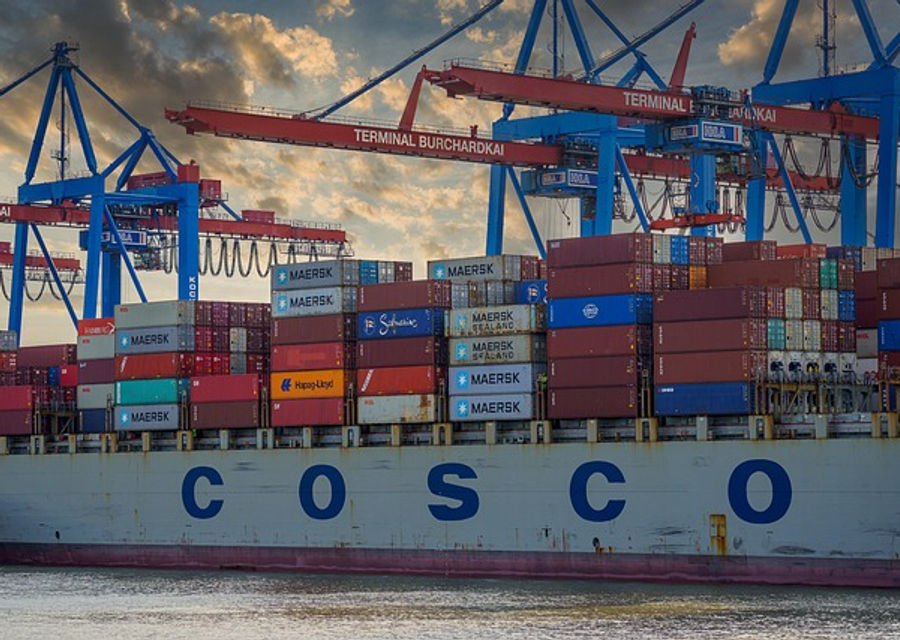BSE Enhances SME Migration Norms for Higher Listing Quality
- THE MAG POST

- 4 hours ago
- 12 min read

The BSE SME migration norms have been updated to improve the quality of listings. These changes are designed to increase transparency and protect investors. The new rules require companies to have higher profitability and more public shareholders. Additionally, there are new liquidity requirements to ensure active trading. These changes aim to make the BSE SME platform more reliable for investors. The BSE is committed to maintaining high standards for companies looking to move to the main board. These updates will help foster a stronger market.
The Bombay Stock Exchange (BSE) has recently elevated its standards for SME migration to main board, a strategic move designed to significantly enhance the quality of listed companies. These revised norms aim to foster greater transparency and boost investor confidence by ensuring that only well-established and financially robust SMEs make the transition. The decision reflects BSE's commitment to maintaining market integrity and providing a secure investment environment. This initiative is particularly crucial in today's dynamic market, where investor trust is paramount. By raising the bar, BSE is setting a new benchmark for SME listings, ensuring that the main board remains a reliable platform for investors seeking sustainable growth opportunities. The enhanced criteria will help filter out less stable entities, promoting a more resilient and trustworthy market ecosystem.
Elevated Profitability Norms for BSE SME Migration
Under the revised BSE SME migration norms, companies aspiring to migrate to the main board must now demonstrate a consistent track record of profitability. Specifically, they need to show an operating profit of at least ₹15 crore over the past three financial years, with a minimum of ₹10 crore in each of those years. This requirement marks a significant increase from the previous standard, which only mandated positive operating profit in at least two out of the last three years. The enhanced profitability criteria ensure that only financially sound and stable SMEs are eligible for migration, thereby safeguarding investor interests and promoting market integrity. This stringent financial benchmark reflects BSE's commitment to maintaining high standards and fostering a trustworthy investment environment. By demanding consistent profitability, BSE aims to attract companies with proven business models and sustainable growth potential, further enhancing the overall quality of listings on the main board.
The new profitability threshold for BSE SME migration is a game-changer for small and medium enterprises looking to elevate their market presence. Achieving an operating profit of ₹15 crore over three years, with a minimum of ₹10 crore annually, requires robust financial planning and operational efficiency. This standard ensures that companies are not just temporarily profitable but have a consistent and sustainable business model. The higher bar also serves as an incentive for SMEs to focus on long-term growth and financial stability, which ultimately benefits investors. Companies that meet these stringent criteria are more likely to attract investor confidence and achieve greater success on the main board. This strategic move by BSE underscores its dedication to fostering a resilient and trustworthy market ecosystem.
In addition to the increased profitability requirements for BSE SME migration, companies must also maintain a clean compliance record over the last three financial years. This ensures that SMEs adhere to all regulatory standards and ethical practices, reinforcing investor confidence and market integrity. A clean compliance record demonstrates a company's commitment to transparency and accountability, which are essential for building trust with investors. By scrutinizing compliance records, BSE aims to weed out companies with a history of regulatory violations or unethical behavior, further enhancing the quality of listings on the main board. This comprehensive approach to evaluating SMEs ensures that only those with sound financial performance and ethical business practices are eligible for migration.
The BSE's decision to raise the profitability norms for BSE SME migration reflects a broader trend in the financial industry towards stricter regulatory oversight and enhanced investor protection. As markets become more complex and interconnected, it is crucial for exchanges to implement robust standards that safeguard investor interests and promote market stability. The enhanced profitability criteria not only ensure that SMEs are financially sound but also encourage them to adopt best practices in corporate governance and risk management. This proactive approach helps mitigate potential risks and fosters a more resilient market ecosystem. By setting a higher bar for SME migration, BSE is demonstrating its commitment to maintaining the highest standards of integrity and transparency in the Indian stock market.
Increased Shareholder and Liquidity Requirements for BSE SME Migration
The BSE has also significantly increased the minimum number of public shareholders required for BSE SME migration, raising it fourfold from 250 to 1,000. This substantial increase aims to ensure broader public participation and greater liquidity in the company's shares. A larger shareholder base reduces the potential for market manipulation and enhances price discovery, benefiting both investors and the company. The move also aligns with global best practices for listing on main boards, which typically require a significant number of public shareholders. By demanding a more diverse and engaged shareholder base, BSE is promoting a more transparent and efficient market environment. This strategic adjustment underscores BSE's commitment to fostering a robust and trustworthy platform for investors.
In addition to the increased shareholder requirements for BSE SME migration, new liquidity norms have been introduced to ensure active trading of the company's shares. Specifically, at least 5 percent of the weighted average number of equity shares must be traded in the past six months. Furthermore, trading must occur on at least 80 percent of the market days during that period. These liquidity requirements are designed to prevent thinly traded stocks, which can be susceptible to price volatility and manipulation. By ensuring a minimum level of trading activity, BSE aims to provide investors with greater confidence in the market's ability to accurately reflect the company's value. These measures enhance market efficiency and promote a more stable and reliable investment environment.
The combined effect of the increased shareholder and liquidity requirements for BSE SME migration is to create a more robust and transparent market for SME stocks. A larger shareholder base, coupled with active trading, reduces the risk of market manipulation and enhances price discovery. This benefits both investors and the company by ensuring that the stock price accurately reflects the company's underlying value. The new norms also encourage SMEs to engage with their shareholders and promote their stock to a wider audience, which can lead to increased investor interest and higher valuations. By setting these higher standards, BSE is fostering a more mature and sophisticated market for SMEs, paving the way for their long-term success.
The BSE's decision to raise the bar for shareholder and liquidity requirements for BSE SME migration is a proactive step towards enhancing market integrity and investor protection. By demanding a larger and more active shareholder base, BSE is reducing the potential for market abuse and promoting a more level playing field for all investors. The new norms also align with global best practices for listing on main boards, which typically require a significant level of public participation and trading activity. This strategic move underscores BSE's commitment to maintaining the highest standards of transparency and fairness in the Indian stock market. By setting these higher standards, BSE is fostering a more resilient and trustworthy market ecosystem.
The enhanced shareholder and liquidity requirements for BSE SME migration are particularly beneficial for retail investors, who may be more vulnerable to market manipulation and price volatility. By ensuring a larger and more active shareholder base, BSE is providing retail investors with greater confidence in the market's ability to accurately reflect the company's value. The new norms also encourage SMEs to engage with retail investors and provide them with clear and transparent information about their business and financial performance. This fosters a more informed and engaged investor base, which is essential for the long-term health and stability of the market. By prioritizing the interests of retail investors, BSE is promoting a more inclusive and equitable market environment.
Net Tangible Assets and Compliance for BSE SME Migration
In addition to profitability, shareholder base, and liquidity, the BSE has also set a minimum threshold for net tangible assets for BSE SME migration. Companies must now have net tangible assets of at least ₹3 crore in each of the last three financial years. This requirement ensures that SMEs have a solid asset base to support their operations and growth. Net tangible assets provide a cushion against financial distress and demonstrate a company's ability to meet its obligations. By setting this minimum threshold, BSE is ensuring that only financially stable and well-capitalized SMEs are eligible for migration to the main board. This enhances investor confidence and promotes a more resilient market ecosystem.
The requirement for a clean compliance record for BSE SME migration is another critical aspect of the enhanced eligibility framework. Companies must maintain a clean compliance record over the last three financial years, demonstrating their commitment to regulatory standards and ethical practices. A clean compliance record indicates that the company has consistently adhered to all applicable laws and regulations, including those related to financial reporting, corporate governance, and environmental protection. This provides investors with assurance that the company is well-managed and operates with integrity. By scrutinizing compliance records, BSE aims to weed out companies with a history of regulatory violations or unethical behavior, further enhancing the quality of listings on the main board.
The combined effect of the net tangible assets and compliance requirements for BSE SME migration is to ensure that only financially sound and ethically responsible companies are eligible for migration. A strong asset base, coupled with a clean compliance record, demonstrates a company's ability to withstand economic challenges and operate with integrity. This benefits investors by reducing the risk of financial distress or regulatory violations. The new norms also encourage SMEs to adopt best practices in corporate governance and risk management, which can lead to improved performance and higher valuations. By setting these higher standards, BSE is fostering a more mature and sophisticated market for SMEs, paving the way for their long-term success.
The BSE's decision to raise the bar for net tangible assets and compliance for BSE SME migration reflects a broader trend in the financial industry towards greater transparency and accountability. As investors become more discerning and demand higher standards of corporate governance, it is crucial for exchanges to implement robust eligibility criteria that ensure only the most reputable and financially sound companies are listed on the main board. The enhanced net tangible assets and compliance requirements not only protect investors but also promote a more level playing field for all market participants. By setting these higher standards, BSE is demonstrating its commitment to maintaining the highest standards of integrity and transparency in the Indian stock market.
The enhanced net tangible assets and compliance requirements for BSE SME migration are particularly important for attracting institutional investors, who typically have strict due diligence requirements and prefer to invest in companies with strong financial fundamentals and a proven track record of compliance. By meeting these higher standards, SMEs can increase their visibility and attract greater interest from institutional investors, which can lead to higher valuations and improved access to capital. This benefits the entire market by promoting greater liquidity and efficiency. By prioritizing the interests of institutional investors, BSE is fostering a more sophisticated and dynamic market environment.
Impact of Revised Norms on Market Integrity
The revised BSE SME migration norms are expected to have a significant positive impact on market integrity. By raising the bar for eligibility, BSE is ensuring that only well-established and financially robust SMEs are able to migrate to the main board. This reduces the risk of market manipulation and insider trading, which can erode investor confidence and undermine the integrity of the market. The enhanced norms also promote greater transparency and accountability, as companies are required to disclose more information about their financial performance and operations. This allows investors to make more informed decisions and reduces the potential for fraud or misrepresentation. By fostering a more transparent and trustworthy market environment, BSE is attracting more investors and promoting the long-term growth and stability of the Indian stock market.
The BSE's ongoing efforts to improve investor confidence and market integrity are reflected in its proactive approach to regulating the SME segment. By strengthening the eligibility framework for BSE SME migration, BSE is sending a clear message that it is committed to maintaining the highest standards of transparency and fairness. The enhanced norms also serve as a deterrent to companies that may be tempted to engage in unethical or illegal behavior. By setting a higher bar for entry, BSE is creating a more level playing field for all market participants and promoting a culture of compliance and ethical conduct. This benefits the entire market by fostering a more trustworthy and resilient investment environment.
The long-term impact of the revised BSE SME migration norms is expected to be a more vibrant and sustainable SME sector. By encouraging SMEs to focus on long-term growth and financial stability, BSE is helping them to build stronger and more resilient businesses. This, in turn, will lead to increased job creation and economic growth. The enhanced norms also make it easier for SMEs to attract investment and access capital, which is essential for their continued expansion. By fostering a more supportive and transparent market environment, BSE is helping SMEs to realize their full potential and contribute to the overall prosperity of the Indian economy.
The BSE's commitment to promoting market integrity extends beyond the SME segment. The exchange has also implemented a number of other measures to enhance transparency and investor protection, including stricter listing requirements for all companies, enhanced surveillance and enforcement mechanisms, and investor education programs. These efforts are designed to create a more level playing field for all market participants and promote a culture of compliance and ethical conduct. By working closely with regulators, market participants, and investors, BSE is helping to build a more resilient and trustworthy Indian stock market.
In conclusion, the revised BSE SME migration norms represent a significant step forward in enhancing market integrity and investor protection. By raising the bar for eligibility, BSE is ensuring that only well-established and financially robust SMEs are able to migrate to the main board. This reduces the risk of market manipulation and insider trading, promotes greater transparency and accountability, and fosters a more vibrant and sustainable SME sector. The enhanced norms also align with global best practices for listing on main boards, which typically require a significant level of public participation and trading activity. By setting these higher standards, BSE is demonstrating its commitment to maintaining the highest standards of integrity and transparency in the Indian stock market.
Future Outlook for BSE SME Listings
Looking ahead, the future outlook for BSE SME listings appears promising, driven by the exchange's proactive measures to enhance listing quality and promote investor confidence. The revised BSE SME migration norms are expected to attract a new wave of high-quality SMEs seeking to access the main board and tap into a wider pool of investors. These companies will be characterized by strong financial fundamentals, ethical business practices, and a commitment to transparency and accountability. As more of these companies list on the BSE, the overall quality of the SME segment will improve, attracting even more investors and fostering a virtuous cycle of growth and prosperity. This positive outlook is further supported by the growing interest in the Indian stock market from both domestic and international investors.
The BSE's ongoing efforts to promote investor education and awareness are also expected to play a key role in shaping the future of BSE SME listings. By providing investors with clear and transparent information about the risks and opportunities associated with investing in SMEs, BSE is empowering them to make more informed decisions. This, in turn, will lead to a more stable and sustainable market for SME stocks. The exchange is also working to enhance its surveillance and enforcement mechanisms to detect and prevent market manipulation and insider trading. These efforts will further enhance investor confidence and promote a more level playing field for all market participants.
The increasing adoption of technology in the Indian stock market is another factor that is expected to drive the growth of BSE SME listings. Online trading platforms and mobile apps are making it easier for investors to access the market and trade SME stocks. This is particularly beneficial for retail investors, who may have previously been excluded from the market due to high transaction costs or lack of access to information. As technology continues to evolve and become more accessible, it is expected to play an even greater role in shaping the future of BSE SME listings. This will lead to increased liquidity and efficiency in the market, benefiting both investors and companies.
The Indian government's supportive policies for SMEs are also expected to contribute to the growth of BSE SME listings. The government has implemented a number of initiatives to promote the growth and development of SMEs, including tax incentives, access to finance, and infrastructure development. These policies are creating a more favorable environment for SMEs to thrive and grow, which will, in turn, lead to increased listing activity on the BSE. The government is also working to simplify the regulatory framework for SMEs, making it easier for them to comply with regulations and access the market. This will further enhance the attractiveness of the BSE as a listing destination for SMEs.
In conclusion, the future outlook for BSE SME listings is bright, driven by a combination of factors, including the exchange's proactive measures to enhance listing quality, promote investor confidence, and embrace technology. The Indian government's supportive policies for SMEs are also expected to play a key role in shaping the future of the SME segment. As more high-quality SMEs list on the BSE and investors become more informed and engaged, the market is expected to become more vibrant and sustainable. This will benefit the entire Indian economy by fostering innovation, creating jobs, and promoting economic growth.
From our network :
Efficiently Adding Polynomial Features to a Python DataFrame
T-SQL NULL Handling in Stored Procedures: Effective Solutions for Duplicate Detection
Navigating the Labyrinth: Unpacking the Legal Landscape of Child Sexual Exploitation Material
Exploring Quantum Brain Functions: New Insights into Consciousness





















Komentar